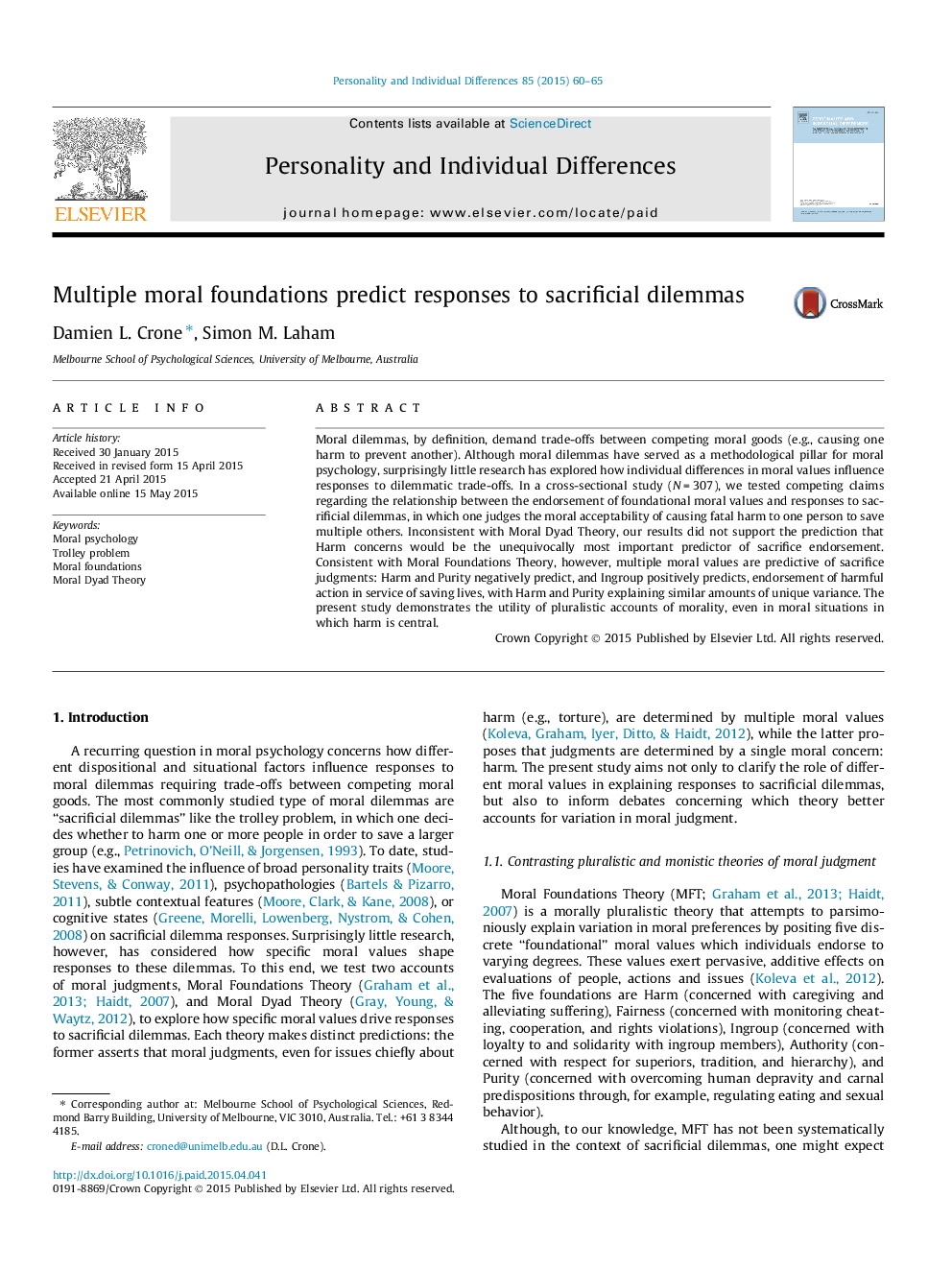| Article ID | Journal | Published Year | Pages | File Type |
|---|---|---|---|---|
| 7251193 | Personality and Individual Differences | 2015 | 6 Pages |
Abstract
Moral dilemmas, by definition, demand trade-offs between competing moral goods (e.g., causing one harm to prevent another). Although moral dilemmas have served as a methodological pillar for moral psychology, surprisingly little research has explored how individual differences in moral values influence responses to dilemmatic trade-offs. In a cross-sectional study (NÂ =Â 307), we tested competing claims regarding the relationship between the endorsement of foundational moral values and responses to sacrificial dilemmas, in which one judges the moral acceptability of causing fatal harm to one person to save multiple others. Inconsistent with Moral Dyad Theory, our results did not support the prediction that Harm concerns would be the unequivocally most important predictor of sacrifice endorsement. Consistent with Moral Foundations Theory, however, multiple moral values are predictive of sacrifice judgments: Harm and Purity negatively predict, and Ingroup positively predicts, endorsement of harmful action in service of saving lives, with Harm and Purity explaining similar amounts of unique variance. The present study demonstrates the utility of pluralistic accounts of morality, even in moral situations in which harm is central.
Related Topics
Life Sciences
Neuroscience
Behavioral Neuroscience
Authors
Damien L. Crone, Simon M. Laham,
